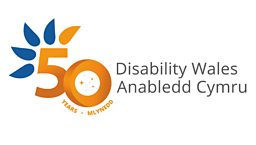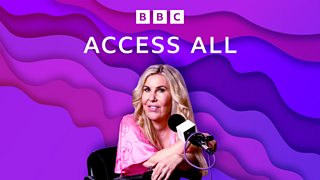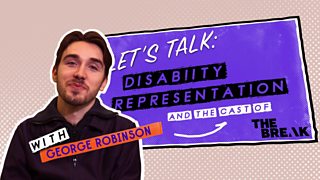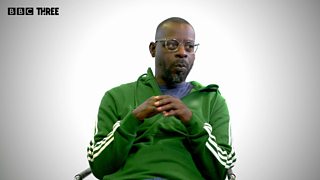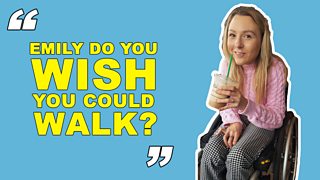Main content
Talk Disability
46% of people worry about talking to disabled people. Given that 27% of people in Wales are disabled, that's a lot of conversations we could be having, and a lot of friends we could be making.
To change this, we need to be able to talk. So, we are launching Talk Disability to help get those conversations started, and to give people the confidence to talk without the fear of getting it wrong.


Talk Disability – Watch now
Meet Paige Lea Walters and give yourself the confidence to Talk Disability.
It’s just about talking to people
Please don’t speak to me in your customer service voicePaige Lea Walters, Profoundly visually and hearing impaired
- The first step is easy - talk to disabled people in the same way as you talk to everyone else.
- Just speak in your usual tone of voice. Don’t patronise or talk down.
- Don’t be too precious or too politically correct – being super-sensitive to the right and wrong language and depictions will stop you talking to anyone.
- Some disabled people need a bit more time to talk – so let them. Never attempt to speak or finish a sentence for the person you are talking to.
- Always speak directly to a disabled person, even if they have an interpreter or companion with them.
- Ask a disabled person if they have any specific access requirements to support their experience.
Use everyday language
Your awkwardness can make me feel awkward. Please, just talk!Paige Lea Walters, Profoundly visually and hearing impaired
- Most disabled people are comfortable with the words used to describe daily living. People who use wheelchairs ‘go for walks’ and people with vision impairments may be very pleased – or not – ‘to see you’. An impairment may just mean that some things are done in a different way.
- Common phrases that may associate impairments with negative things should be avoided, for example ‘deaf to our pleas’, ‘turn a blind eye’ or ‘crippled by debt’.
- If you’re ever in doubt – just ask the disabled person what language they would like to be used!
Be positive
- Avoid phrases like ‘suffers from’ which suggest discomfort, constant pain and a sense of hopelessness.
- Referring to disabled people as ‘vulnerable’ can suggest that they are weak or helpless. It can also result in making people more of a target for domestic violence, disability related harassment and hate crime. Disabled people can find themselves in vulnerable situations, often due to lack of support and social isolation and it is this that should be tackled.
- Wheelchair users may not view themselves as ‘confined or bound to’ a wheelchair – try thinking of it as a mobility aid instead. A wheelchair is often very liberating.
The guidance on this webpage has been written with support from Disability Wales. For more information, visit:
